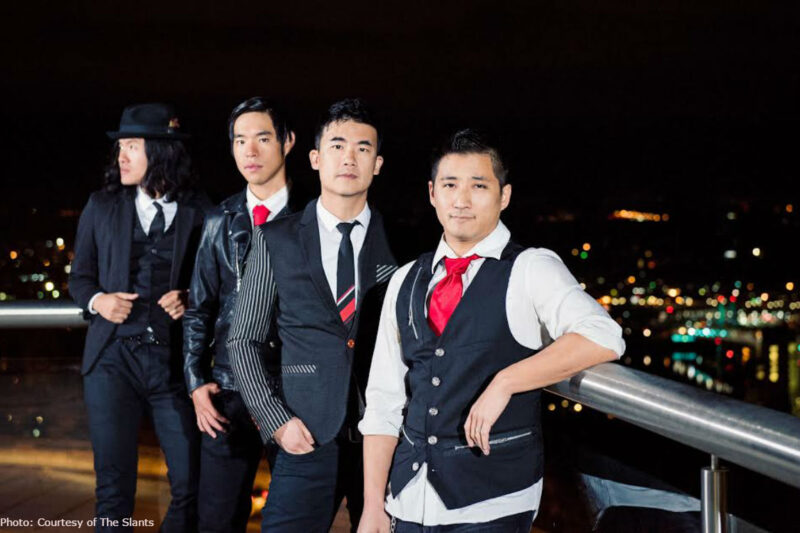The Federal Trademark Office Won’t Protect Our Band’s Name, The Slants, Because It Says the Name Is Racist. We’re All Asian-American, By the Way.


I believe in the culture of untrammeled free speech.
I don’t block or unfriend people I disagree with on social media. I actively engage with them. Despite the prevailing advice, I read the comments section. It isn’t out of a hope that I’ll find a source of deep insight on complex issues. I do it because I believe it is important to connect with others who hold opposing beliefs. To me, an open exchange of ideas, even when I personally disagree with a viewpoint, is an integral part of living in a free democracy.
That’s what makes it all the more frustrating that I’ve spent almost a quarter of my life fighting the government simply because they don’t think it is appropriate for an Asian-American band to use the term “slant.” Today I take all the way to the Supreme Court.
Eight years ago, I applied to register the trademark for my anti-racist dance/rock band, The Slants. After Googling us, the United States Patent and Trademark Office determined our name was a slur in this context because we are Asian-American. Because the term “slant” is disparaging to persons of Asian descent, they told us that they were unable to register our band name.
We were actually singled out because of our identity, with the implication being that an all-white group could have gotten the trademark because the examiner wouldn’t have “figured out” it was a racial thing by Googling it. In the name of protecting us against racism, they denied us rights based on race.
The government’s main argument for the denial is also their weakest. Not being granted a trademark registration doesn’t mean that I can’t use the name, it just means that I can’t fully protect it. And, as the government itself admits, it still doesn’t stop hate speech from occurring. Rather it simply gives the government unfettered power to determine who can have access to trademark registration and who can’t.
By calling our band The Slants, we were engaging in a process of self-empowerment called reappropriation, where we take back the meaning of harmful terms to reduce their sting. It’s an effective way to create social change, especially in the arts. However, it is something that has baffled the trademark office, which has led to incredible inconsistent and subjective laws. They have been all over the place with terms like queer, bitch, Jesus freak, or any other kind of identifier that is used in both a positive or negative way.
The government claims that people can appeal decisions they feel are wrong. But the reality is that no one has ever been completely successful in an appeal, no matter how much evidence they have on their side.
Take for example San Francisco’s social justice group, Dykes on Bikes. After years of battling, the group finally won trademark registration for the words “Dykes on Bikes.” However, two years later, the Trademark Office again rejected an application to register the Dykes on Bikes logo — and they were back at square one.
As you may have figured out already, this outdated trademark law affects some groups more than others. It has been used primarily against communities of color, women, and LGBTQ people — especially those who engage in reappropriation. The result is that groups who are already often silenced by majority institutions are then unduly burdened with expensive fees and an endless appeal process that doesn’t actually result in justice. Most of us don’t have endless resources to fight in court — unlike the Washington football team — and many of us have given up or had to change the name of our businesses, nonprofit organizations, and logos.
When the government tries to play language police they are bound to mistakes that threaten freedom of speech and expression. It is undeniable that a person’s quality of life, their opportunities, and their rights may hinge on their identity — and it is time the Trademark Office figured this out.


